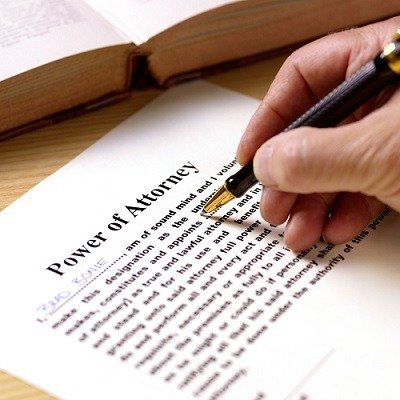
A power of attorney is an authorization that empowers whoever acts for them. The person for whom the power they confer (the “principal”) or by a court can grant a power of attorney. These powers provide to the procurator who is limited to certain areas such as managing property or making health care decisions, which may be broader.
A lawyer can assist you in creating an appropriate power of attorney and make sure it meets your needs. There are a few things to know about powers of attorney:
What is the Power of Attorney, and why is it important?
A power of attorney is a legal record that gives someone whoever acts for them. It is essential in Canada because it allows a person to operate on your behalf when you cannot do so.
It grants a power of attorney for many reasons but the most common is when you are traveling abroad, and cannot take care of your affairs or if you have an illness that prevents you from deciding for yourself.
Things You Need to Know About Canada’s Legal System and Powers of Attorney:
Legal systems are complex, and to be prepared for any legal situation, it is necessary to understand the basics of Canadian law. There are many types of lawyers in Canada that specialize in different areas of law. They can also use the authority of attorney when you want someone else to decide if you become disabled or unable to decide for yourself.
Who Can Be an Attorney-in-Fact?
The word “attorney-in-fact” describes the person who acts for another. Lawyers in Canada are not the only ones who can act as attorney-in-facts.
An attorney-in-fact is someone who acts for them. Two types of attorneys-in-fact are:
- An attorney under a general power, and
- An “attorney under a special power.”
In Canada, the people who can be attorney-in-fact are:
- A lawyer in Canada;
- A person with a power of attorney; and
- A guardian or tutor of the individual who grants the power of attorney.
What Are the Different Powers That an Attorney-in-Fact Awarded?
When a person is being considered for a power of attorney, he usually needs to have a relationship with the attorney. In Canada, different authorities provide an attorney-in-fact.
The person granted the powers is called the principal, and whoever acts for them is called an Attorney-in-Fact. An Attorney-in-Fact can:
- Create a trust
- Sell and buy property
- Take out and close loans
- Enter contracts
- Execute any other lawful transactions for which there is no specific limit.
The Importance and Necessity of a POA:
POA is required when an individual wishes to appoint another individual or company in certain situations. A POA is not just for medical purposes but for any condition, where the person lacks capacity. It includes when the person wishes to appoint someone with their finances or property if they cannot do so themselves or they cannot provide consent.
There are few legal documents that Canadians need but a POA might be one of them if you have concerns about your health, and ability to decide for yourself one day.
What are the hazards for Canadians without POA?
One risk for Canadians without Power of Attorney is that they cannot sign any documents and take care of their finances and healthcare. The following list includes the most common risks:
- Unable to manage their finances, such as bills and taking care of credit card charges.
- Unable to pay for healthcare and keep up with prescriptions.
- Unable to make health decisions, such as choosing a doctor or what treatments they would like to have. Inability to make legal decisions, such as how the assets will be sold or who will be the beneficiary of a life insurance policy.
The Basics of PAs for Seniors:
PA’s for seniors in Canada are no longer coming just from the healthcare professionals. It has become more widespread in the community, and it is changing the way seniors live their lives.
Three major professionals provide PA services to seniors:
- Healthcare Professionals
- Community Professionals
How to Arrange for a Future Likely to Require a Power of Attorney or Other Legal Intervention from Others?
Here, we discuss what to do when a person in Canada encounters a medical emergency, and cannot decide. With the power of attorney, a loved one can choose for someone unable to make them on their own.
Power of Attorney – A Power of Attorney, or POA, is an arrangement in which a person appoints someone else – called an “agent” to make legal and financial arrangements in their favor if they become incapacitated. Besides selecting someone to act as their agent, most people also create a “medical directive” specifying personal health care instructions they would want to be followed if they could not speak for themselves.
The person creating the POA must have a comprehensive understanding of its effects.
Conclusion:
Lawyer Approach is a legal referral firm that assists people in obtaining Power of Attorney in Canada. They offer you an understanding of the process of POA and how it will affect you.
If you are looking for help with Power of attorney, then the Lawyer Approach is the right place to turn. They provide free initial consultations and answer your questions about POA and how it will affect you.

